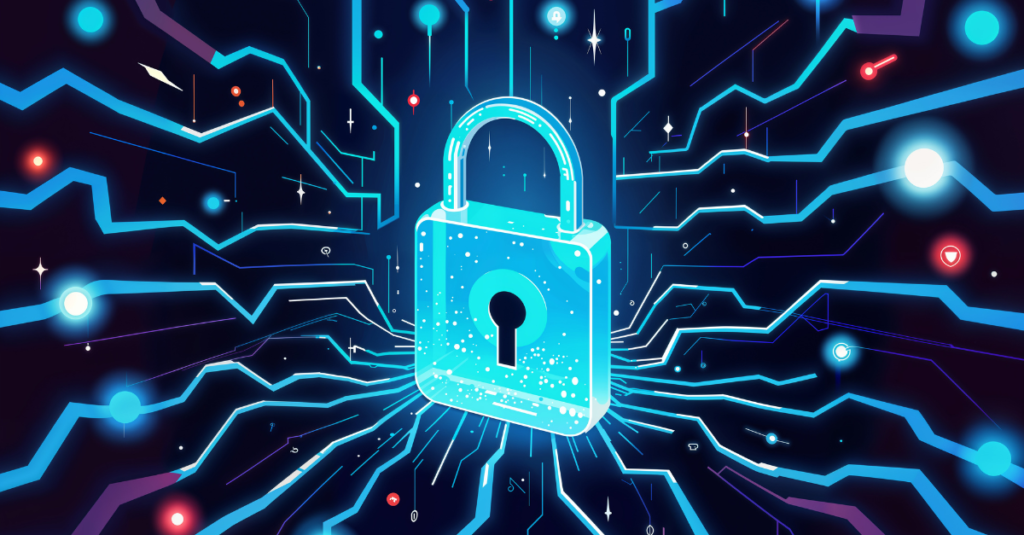Cyber Security: Safeguarding Your Digital World
Cyber Security is no longer an optional safeguard it’s a necessity in today’s interconnected world. As technology advances, so do the sophisticated tactics of cybercriminals looking to exploit vulnerabilities for their gain. From ransomware attacks and phishing scams to data breaches and identity theft, cyber threats have become a daily concern for individuals, businesses, and governments. Whether it’s safeguarding personal information, protecting sensitive business systems, or defending critical infrastructure, the role of cyber security in our digital lives cannot be overstated.

With the ever-growing reliance on digital tools, understanding cyber security fundamentals is the first step toward building a safer online environment. This blog post explores the common cyber threats you might encounter, the risks they pose, and actionable strategies to strengthen your defense. By implementing robust security practices like using strong passwords, enabling multi-factor authentication, and staying alert to suspicious activity you can significantly reduce your exposure to cyber risks. Let’s uncover how to stay one step ahead of cybercriminals and ensure your digital life remains secure.
The Importance of Cyber Security in the Digital Age
What Is Cyber Security?
At its core, cyber security involves protecting internet-connected systems, including hardware, software, and data, from cyberattacks. Its goal is to ensure the confidentiality, integrity, and availability of information.
Cybersecurity is vital for:
- Individuals: Protecting personal data like passwords, credit card information, and social media accounts.
- Businesses: Safeguarding proprietary data, financial information, and customer trust.
- Governments: Defending sensitive information and ensuring national security.
Why Is Cyber Security Crucial?
The digital age has brought immense convenience but also heightened risks:
- Increased Connectivity: More devices mean more entry points for cyberattacks.
- Sophisticated Threats: Cybercriminals now use advanced tactics, from ransomware to AI-powered attacks.
- Financial and Emotional Costs: Cyberattacks can lead to massive financial losses and personal distress.
Common Cyber Security Threats
1. Phishing Attacks
Phishing remains one of the most common and dangerous cyber security threats. These attacks trick individuals into providing sensitive information, often through deceptive emails or messages.
How to Prevent Phishing:
- Avoid clicking on suspicious links.
- Verify the sender’s authenticity.
- Use email filters to block malicious content.
2. Malware
Malicious software, or malware, is designed to infiltrate systems and cause harm. This includes viruses, spyware, and ransomware.
How to Stay Safe:
- Install reputable antivirus software.
- Update your operating system regularly.
- Avoid downloading files from unknown sources.
3. Ransomware
Ransomware locks users out of their systems until a ransom is paid. It’s a growing threat in the cyber security landscape.
Tips for Protection:
- Back up your data frequently.
- Use strong passwords for all accounts.
- Train employees to recognize suspicious activity.
The Role of Cyber Security in Business
Why Businesses Need Strong Cyber Security Measures
Businesses are prime targets for cyberattacks due to the vast amount of sensitive data they handle. A breach can result in:
- Loss of customer trust.
- Financial penalties.
- Legal ramifications.
Cyber Security is essential for protecting intellectual property, ensuring compliance with data protection regulations, and maintaining operational continuity.
How to Strengthen Your Cyber Security
Essential Cyber Security Tips
1. Use Strong Passwords and Multi-Factor Authentication
Passwords are your first line of defense. Use strong, unique passwords for all accounts and enable multi-factor authentication (MFA) wherever possible.
2. Regularly Update Software and Systems
Outdated software is a major vulnerability. Ensure all systems, including operating systems and apps, are updated regularly.
3. Employ Firewalls and Antivirus Software
Firewalls and antivirus programs act as barriers, blocking unauthorized access and detecting malicious activity.
4. Educate Yourself and Your Team
A well-informed team is your best defense. Conduct regular cyber security training sessions to educate employees about potential threats.
5. Backup Data Regularly
Regular backups ensure that critical information is not lost during a cyberattack. Use cloud storage or external drives for additional security.
Emerging Trends in Cyber Security
1. Artificial Intelligence (AI)
AI is playing an increasingly vital role in cyber security, with capabilities to detect and neutralize threats in real time.
2. Zero-Trust Architecture
Zero-trust models verify every access request, enhancing protection against internal and external threats.
3. Blockchain Technology
Blockchain provides a decentralized approach to securing data, ensuring tamper-proof records.
4. Internet of Things (IoT) Security
With the rise of IoT devices, securing connected devices is becoming a priority in the cyber security domain.
The Impact of Poor Cyber Security
Failing to prioritize cyber security can have devastating consequences:
- Financial Losses: Data breaches can cost businesses millions of dollars.
- Reputation Damage: Losing customer trust can be irreparable.
- Legal Penalties: Non-compliance with data protection regulations can lead to lawsuits and fines.
Cyber Security for Individuals
Protecting Yourself Online
Even if you don’t run a business, you’re still a target for cybercriminals. Here’s how to stay safe:
1. Secure Your Wi-Fi: Use a strong password and enable network encryption.
2. Avoid Public Wi-Fi: If you must use it, employ a Virtual Private Network (VPN).
3. Monitor Accounts: Regularly review your financial and online accounts for unauthorized activity.
4. Be Wary of Links: Always verify links before clicking.
5. Enable Device Encryption: Protect sensitive data on your devices.
The Future of Cyber Security
The cyber security landscape is ever-evolving. As cybercriminals develop new tactics, professionals in this field must stay ahead with innovative solutions. Continued awareness, education, and proactive measures are essential to ensuring a safer digital environment.
Conclusion:
The battle against cyber threats is ongoing, but by prioritizing cyber security, individuals and businesses can significantly reduce their risk. From securing devices to educating yourself about potential threats, every step matters in protecting your digital world. Stay informed, stay vigilant, and remember: in the realm

Comments
Post a Comment